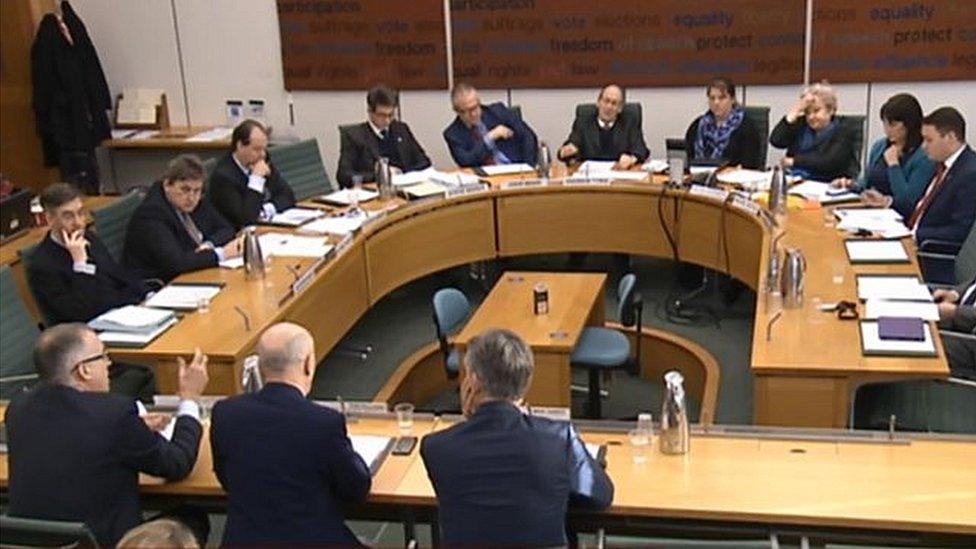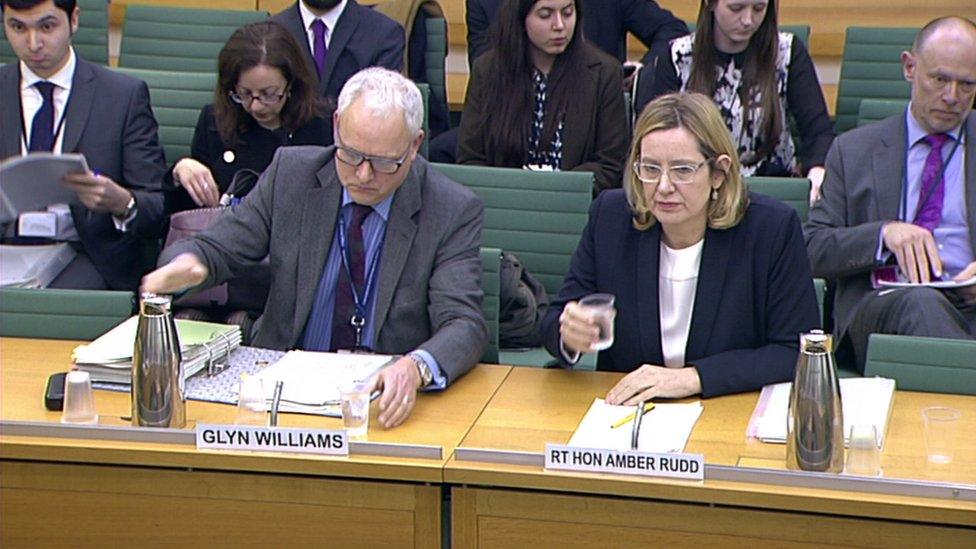What do the elections of select committee chairs tell us?
- Published
- comments

To the smartest the spoils.
The results of the elections for chairs of the Commons select committees, external are due this evening, and the detailed results will shine a fascinating light on the fault-lines of the new House of Commons.
At stake are powerful posts which will command considerable influence in the precariously-balanced hung Parliament returned on 8 June. (There's also the small matter of a £15,000 salary bump).
In this precariously balanced House of Commons, the verdicts of select committees on government policies, or scandals or whatever, may prove crucial.
And key chairs like those of the Treasury Committee, the Education Committee, the Business Committee and the Transport Committee are vacant.
The key to winning is the ability to reach out across ideological, party and now, Brexit, divides.
Reaching out
If several Conservatives, for example, are in the running for a chair allocated to their party, the race will be decided by the votes of other parties, so the winner must, above all, win Labour votes.
The pattern in recent years has been for Labour MPs to swing behind the candidate they judge most likely to be independent-minded or, to put it another way, most likely to cause the government trouble. Hence the choice, towards the end of the 2010 Parliament, of Sarah Wollaston and Rory Stewart as chairs of the Health and Defence committees.
Thus codewords like "independent" and "fearless inquisitor" are deployed in campaign literature, and reinforced in quiet tete-a-tetes with prominent figures on the other side.
And it is also the point at which old grudges and slights are recalled - an MP on one side, with a reputation for harsh confrontational attacks on the other may find no-one is willing to listen to promises of consensus and cooperation.
A key signal to the electorate of MPs is the list of those nominating a candidate. The smart move is to have an eclectic group of respected figure, demonstrating an appeal across ideological and factional divides.
Here is where networks come into play. This might mean the cross-party freemasonry of whips, it could be links forged through working together in all-party groups, or in select committees themselves.

Questioning the secretaries of state is part of the select committee's remit
After a couple of terms, most MPs have cross party links that may extend into actual friendships, and these relationships will be put to work. It is far better to have an appeal from someone in another tribe delivered by a trusted party colleague - and if both sides of the arrangement happen to be running for the chairs of different committees, the favour can be returned in a classic piece of mutual backscratching.
Respite from party woes?
On the Labour side, the committee corridor provides a useful perch for some non-Corbyn supporting MPs, where they can cultivate an alternative agenda while the internal situation in their party unfolds (this is putting it delicately).
There don't seem to be any direct clashes between the two Labour factions - perhaps the Ian Mearns vs Angela Smith contest for the Backbench Business Committee, external comes closest - and some of the biggest beasts, if Yvette Cooper and Hilary Benn will forgive the term, are unopposed, but the Labour results will bear close scrutiny.
Generational divides matter too.
Some of the most interesting races are those where relative newcomers like Tom Tugendhat (Foreign Affairs) or Johnny Mercer (Defence), both from the 2015 intake, are seeking to topple established Committee chairs like Crispin Blunt and Julian Lewis.
Is the torch about to be snatched by a younger generation of MPs? In the defence race, do I detect some coded arguments?
Mr Lewis cites his 35 years of campaigning experience, and Mr Mercer talks of the need for the committee to be "agile, contemporary and relevant". But whatever the intergenerational angst, some MPs think it is bad form to challenge a sitting chair, and that may weigh against challengers.
But it is happening in a number of these races, and it certainly reflects a Commons less in thrall to seniority.
One consideration here is whether people from rival parties or factions will wish to boost the careers of MPs whose long-term ambitions may extend beyond a role on the committee corridor - might they be giving a launch pad to someone who might become a formidable opponent to their party?
Wild card Brexit
The wild card in this set of committee elections is Brexit. In various races there are candidates pitching themselves as hard Brexiteers, arch-Remainers or honest brokers.
These elections will be a test of whether Brexit sentiment now trumps other allegiances.
Hilary Benn was returned unopposed as chair of the Brexit Committee last week - but almost all the committees will have big Brexit-related issues to mull and their verdict could be decisive in swinging tight Commons votes, which is why races liken the Treasury Committee and even the Education Committee look so interesting.